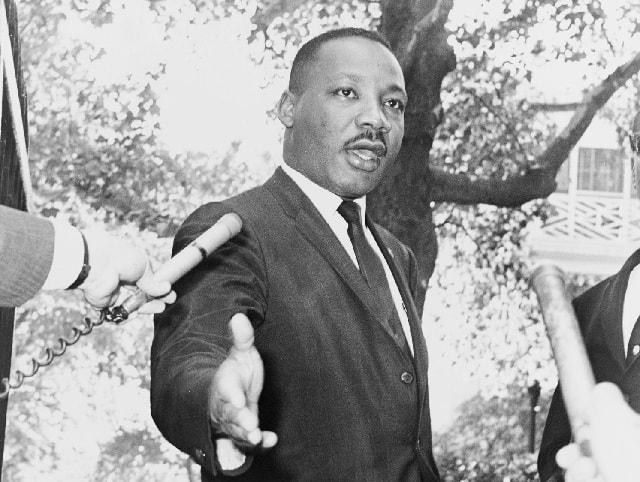Black History Month isn’t a holiday in the conventional sense, but it’s an observance that deserves your nonprofit’s attention. Now’s the time to determine how to prepare your nonprofit — and make changes and additions to your strategy to take advantage of it — as you celebrate Black History Month.
Why Black History Month matters
It doesn’t matter what type of nonprofit you run, who your target demographics are, or what causes you hope to support — Black History Month is a significant opportunity.
Making up for a biased system
Unfortunately, much of our country’s history is dominated by the viewpoint of a single race. Many of the great accomplishments of black Americans are glossed over, misreported, or overlooked in our education system, and Black History Month is our opportunity to pay them their due. It’s an opportunity to improve the education and awareness of all citizens, making up for a biased system that has neglected some of our most influential historical figures.
Encouraging and rewarding diversity
Black History Month is both a reminder and a call-to-action for the importance of diversity within organizations. By observing it, you’ll have more opportunities to notice (and possibly change) the leadership within your own organization, or open your ears to minority populations that have historically been overlooked.
After all, ethnically diverse workplaces are 35 percent more likely to have above-average financial returns.

Bringing attention to important problems and dilemmas
If your nonprofit works with or calls upon the black population in America, this is an even more important opportunity. By citing black history in the United States, you can bring attention to some of your nonprofit’s most pressing problems or most important work. You’ll have more people paying attention to what you say, more supporters willing to share your stories, and a platform to reach a much wider audience in general.
Being part of the conversation
Even if your nonprofit doesn’t have specific ties to the black population, this is still your chance to be involved in the conversation. Voicing your support for the observance can boost your brand’s reputation, and provide learning opportunities for your organization and others.
How to prepare your nonprofit — and why it matters
Black History Month isn’t an event that should be observed out of pure convenience. Too many organizations and companies look at the calendar, and post an impulsive tweet when they realize the date; instead, you’re better served planning your participation weeks, if not months ahead of time. That way, you can invest some time, effort, and money into your participation and truly make it count.
For some nonprofits, that means researching and scheduling a handful of social media posts a few weeks in advance. For others, it means reaching out to black community leaders to schedule them for a speaking event before they’re booked. In any case, your advanced efforts can (and will) make a difference.
Related: A beginner’s guide to social media for small business
Celebrate Black History Month, don’t exploit
There are tasteful ways to bring attention to Black History Month on behalf of your nonprofit or business, but there’s a thin line between observance and exploitation. If your followers feel like you’re posting about black history for the sole purpose of taking advantage of the observance to improve your nonprofit’s popularity, your efforts will do more harm than good.
Your goal shouldn’t be simply to improve your brand reputation, but also to help celebrate and call attention to the month-long event.
Post historical content relevant to your industry
One way to celebrate responsibly is to contribute to the main point of the observance — black history. Research contributions that black people have made to your industry or main focus, and use social media to tell those stories. Talk about important figures who didn’t get as much attention in history books as they should have, or how black people have been historically disenfranchised in a context related to your niche. Be sure to cite your sources, and be thorough, and don’t resort to telling the stories of well-publicized contributors.
Related: GDBIT showcase: Dr. Charles Drew, an American treasure

Editor’s note: If you need social media guidance, consider hiring the experts at GoDaddy Social. They’ll plan and post for you so you can focus on supporting your community.
Give credit to black-owned businesses and community leaders
You can (and should) also turn your attention to black leaders in your own community. If your nonprofit is well-connected in your city, you shouldn’t have to look far to find black entrepreneurs, politicians and other community influencers who are interested in participating in this observance.
Depending on their level of popularity and success, you could host an interview with them, or simply give credit to their accomplishments in your community.
If you don’t feel your nonprofit is suitably connected in your community, it might be time to start investing more effort into your professional networking strategy.
Related: Lessons in life and business from 10 black entrepreneurs
Invite guest speakers and/or host workshops
This isn’t just about what information you should broadcast to your followers and donors; it’s also about what positive changes you can make within your own organization.
For example, you could invite a guest speaker to talk about the importance of diversity, or invite a guest author to contribute to your blog. You could also have someone talk about the historical challenges that minority populations have faced, or host a workshop on the importance of recognizing minority contributions in society.
Any effort you make to incorporate more diversity in your workplace is going to be a positive change in line with the values of Black History Month.
Identify and support other nonprofits
If your nonprofit isn’t working directly with (or for the benefit of) black people in your community, consider highlighting nonprofits that are. Use your social media accounts and marketing platforms to give a boost in visibility to those organizations contributing directly to the black community. You could also lend your support in other ways, donating resources or sharing your space to help them make more of an impact in this especially important month.
Related: 8 ways to give back to your local community as a small business
When determining how to prepare your nonprofit to celebrate Black History Month, remember that you don’t need to completely rebuild from the ground up, and that the nature of your nonprofit doesn’t automatically disqualify you from participation. This is your chance to recognize the contributions of marginalized people of the past, and an opportunity to integrate more diversity into your modern organization — with no real downsides.







